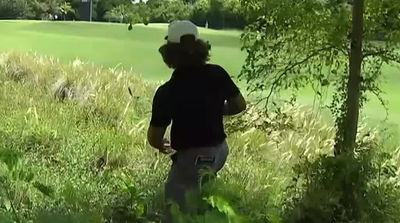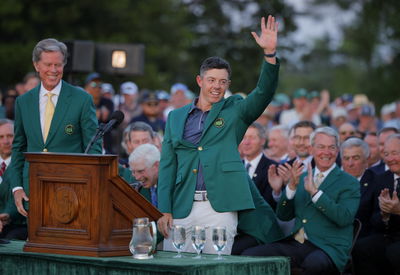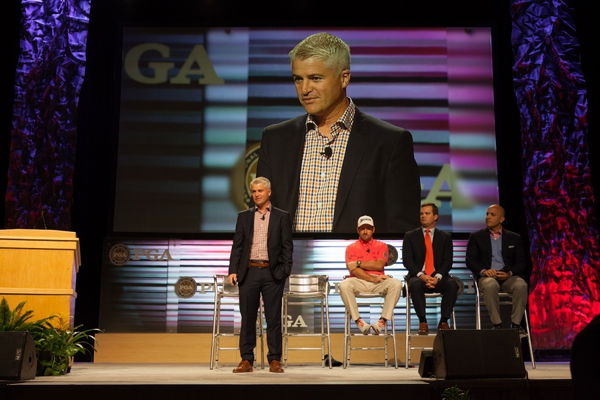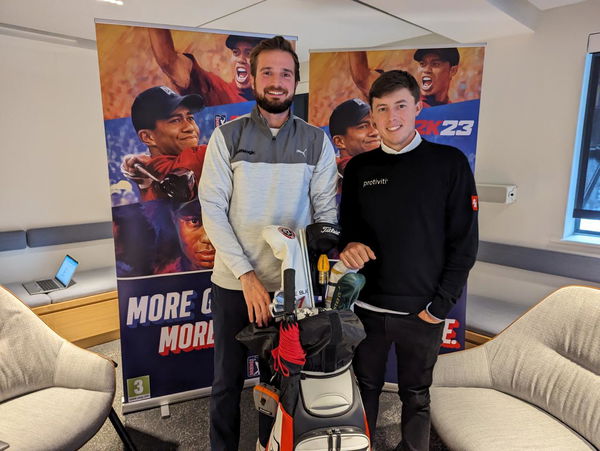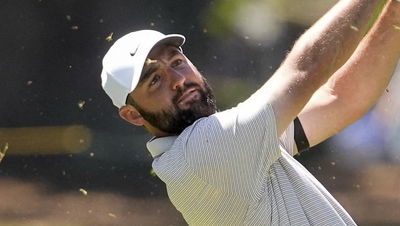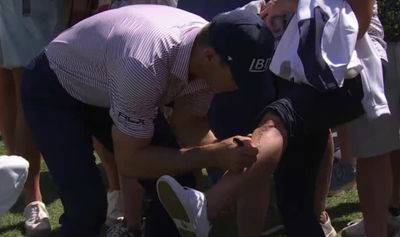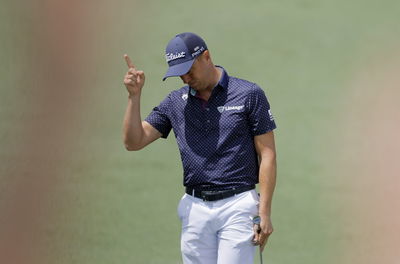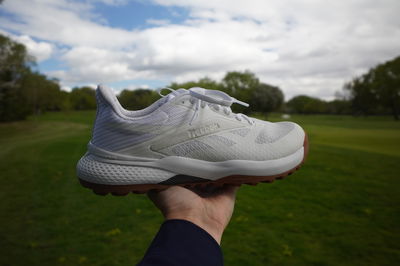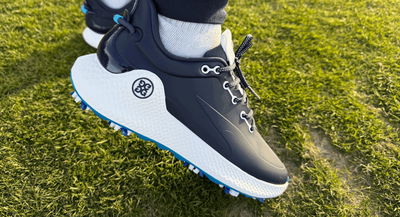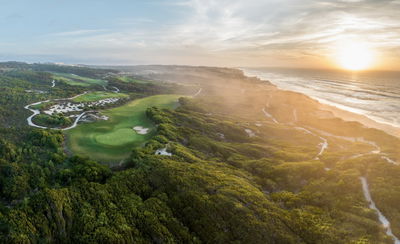Interview: Victor Dubuisson
Ryder Cup star speaks exclusively to Golf-Zone.com at the London Golf Club
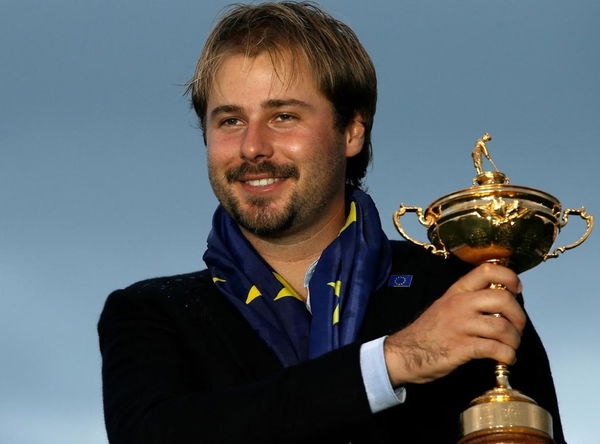
VICTOR DUBUISSON caught up with French Golf magazine Golf-Zone.com at the Volvo World Matchplay Championship at the London Golf Club recently.
A month after helping Europe win the Ryder Cup at Gleneagles, Dubuisson sat down to give his thoughts on the event in retrospect, including his guide to the atmosphere within the European team and intensity inside the team room.
What was your experience of the event? Is it as big as everybody says?
It is an absolutely extraordinary event, it lives up to all the hype. The atmosphere is exceptional. Scotland, in addition, was very special. It’s the true home of golf, the gallery was very vocal… And the golf course itself was great too. In short, it is indeed a truly special event. It was a blast!
For one week, your deadly opponents become team mates and partners. Does a sport as individual as golf lend itself easily to team sport? Did it feel natural for you?
Yes it was quite natural. All my fellow team members are exceptional golfers, plus they were all super-nice. I got to know them all very well, and we were really close. This is the only week where players want to help and support each other on the course. It fosters extraordinary solidarity and close friendships. That, too, is truly unique.
Why did the Captain put you with McDowell? Was there something complementary in how you both play the game? Were you consulted, and how & when did you learn that he was to be your partner?
Paul McGinley wanted to put experienced players together with the rookies. We knew we’d play together two or three months beforehand. During this time, we sometimes arranged to play
together in practice, and we also saw each other from time to time outside tournaments because we knew we would play the foursomes together. In foursomes especially, the bond between the two players is often the key to success: the captain had anticipated this, and it worked really well.
Graeme McDowell – what is the nature of your relationship? Master & Disciple? Friends?
I can say that he is now a friend. This is someone with whom I spend time off the course, he’s a a very nice person, and gave me good advice during the Ryder Cup. It was great to play with him, especially since I also played well. We knew that foursomes is the more difficult discipline, and one which could swing the event for us. That’s why McGinley wanted us to wait until the afternoon. This was all prepared, and it worked out great.
��
VICTOR DUBUISSON caught up with French website Golf-Zone.com to talk through all things 2014 Ryder Cup at Gleneagles, including his victorious debut, bond with Graeme McDowell, guide to the atmosphere within the European team and the intensity inside the team room.
To read the interview in full, please click here.
Victor, what was your experience of the Ryder Cup? Is it as big as everybody says?
It is an absolutely extraordinary event, it lives up to all the hype. The atmosphere is exceptional. Scotland, in addition, was very special. It’s the true home of golf, the gallery was very vocal… and the golf course itself was great too. In short, it is indeed a truly special event. It was a blast!
For one week, your deadly opponents become team mates and partners. Does a sport as individual as golf lend itself easily to team sport? Did it feel natural for you?
Yes it was quite natural. All my fellow team members are exceptional golfers, plus they were all super-nice. I got to know them all very well, and we were really close. This is the only week where players want to help and support each other on the course. It fosters extraordinary solidarity and close friendships. That, too, is truly unique.
Why did captain Paul McGinley put you with Graeme McDowell? Was there something complementary in how you both play the game? Were you consulted, and how and when did you learn that he was to be your partner?
Paul McGinley wanted to put experienced players together with the rookies. We knew we’d play together two or three months beforehand. During this time, we sometimes arranged to play together in practice, and we also saw each other from time to time outside tournaments because we knew we would play the foursomes together. In foursomes especially, the bond between the two players is often the key to success: the captain had anticipated this, and it worked really well.
What is the nature of your relationship with McDowell? Master and Disciple? Friends?
I can say that he is now a friend. This is someone with whom I spend time off the course, he’s a a very nice person, and gave me good advice during the Ryder Cup. It was great to play with him, especially since I also played well. We knew that foursomes is the more difficult discipline, and one which could swing the event for us. That’s why McGinley wanted us to wait until the afternoon. This was all prepared, and it worked out great.
How did you choose who would play the odd and even numbers? And how did you feel on the first tee?
Playing the tee shot on the even numbered holes meant that I’d hit the tee shot on three of the four par fives, so that’s how we decided it. On the first, I was simply focused on making a good second shot – as that’s the hardest shot on the opening hole.
What do you remember of your successful first two days? The fact that you managed well as a pair is obvious. How did you achieve it, and did you talk a lot about strategy during the matches?
We conferred on every shot. It was really about not making mistakes, the goal was not to make bogeys. The course was difficult for foursomes, it was cold and windy, our goal was to hit fairways and greens to create birdie opportunities, picking the right times to be aggressive. We discussed a lot, sometimes for advice on how the wind would affect putting lines, but mainly it was more to reassure one another.
You would have loved to play the fourballs? If so, in addition to McDowell, who would you have liked to play?
Yes, I would have loved to play the fourballs, because I was very fit at the time. But it was important that we were totally prepared for the afternoon foursomes, as it is the most difficult form of the game. And I think that was Paul McGinley’s goal – to have us fittest for the two afternoon sessions. He was proven right: the two points that we brought back were really important. If I had played the fourballs, I think I would have still played with Graeme but I also practiced with Jamie Donaldson, because I get along very well with him. But I think I would have stayed with McDowell.
What role did the coach play? Was it vital, and what did you like about him?
Paul McGinley was a great captain, the best I’ve seen. Some of the more experienced players said that he was the best captain we’ve had in many Ryder Cups. He was very close to the players, everything was personal, everyone followed his instructions, and he made ??sure that we were at our best during the tournament. His objective was for each player to do what was needed to be at his peak, and that we wanted for nothing. There was no stress, he was a kind person, it was really cool. In the evening we were all able to chat freely and he even asked us what number we preferred to play. Everyone had their opinion heard, he didn’t impose anything unreasonable, it was always a real discussion. He was an extraordinary team coach.
McGinley gave you quite a vote of confidence when he put you out last in the singles, when we all knew that this game was crucial at Medinah last time out. When did you know about that, and did you feel extra pressure?
Paul had confidence in me and my game. I was very happy to play last. He wanted to put the most experienced players out early, which made sense. Playing last you can either feel a lot of pressure, or on the contrary it can be very easy, It was always likely that I would know five or six holes before I finished whether the Ryder Cup had been won or not, and that’s exactly what happened. I was playing 13 when I knew we had won. It was a relief, but from there, it was very hard to concentrate. Being out last, everyone followed Zach Johnson and myself, but everyone knew the Cup had already been won. It was really hard to keep your head in the game.
My golf didn’t suffer immediately after I knew that we had won, I actually made ??two birdies to go one up, but after that it got harder to stay in the game. But hey, I was trying to do my best, because we had set a big goal to win the singles on the day. To achieve that we had to get 6.5 points from the singles, and I had to win my match. When I got to 17 and he missed his putt, guaranteeing me at least a half, I knew that we would win the singles whatever happened on 18. I couldn’t lose.
I wanted to play 18 well, with all the world watching, but I admit that I didn’t put my full concentration into my putt on 18!
All these people, all this media coverage… are you susceptible to stress? You seemed unemotional whatever was happening, is that the case?
The Ryder Cup has an atmosphere of its own. First, it’s a tournament which no one wants to lose, and fans are often very vocal. We know the public is an integral part of every golf event, especially that one, so whether people were talking or shouting out, it didn’t bother me at all.
McDowell, Colin Montgomerie, Butch Harmon, Sir Nick Faldo, Darren Clarke… they all praised you in the media. Did they congratulate you personally?
I saw them at night, because they were all at the party. And for sure it’s very rewarding to be recognised. I am delighted to have played well in the Ryder Cup, and it went as I hoped, but it does not change my goals. This is not an end, but a beginning. I am aware that I am at an early stage in my golf career, and hopefully it will last for another 20 years or more. I am obviously very happy to have a successful The Ryder Cup behind me, but I won’t stop there.
The Europeans had something more this year – what do you think that it was?
We had the greater bond between the players and the captain. We got lucky this year with our captain, and I think Paul McGinley made all the difference. He created an atmosphere of sympathy, dynamism and interplay between the team mates. It was a unique atmosphere which allowed us to largely dominate the Cup.
Your best moment?
It came at the end of my first match, with [Phil] Mickelson and [Keegan] Bradley. Until then, they were unbeaten in the Ryder Cup. On that first day there was a lot of wind, it was a difficult foursomes course, much harder than the second day. The putts didn’t drop for us, but we didn’t make many mistakes. We stayed ahead throughout the match. But McDowell hadn’t holed a big one all day, so when we got to the 16th green he said to me: “I’ve never not holed a long putt in The Ryder Cup. Watch. I’m going to hole this one”. It wasn’t really an obvious putt you could hole, so when he nailed it he looked at me, and we shared the moment. The putt won us the match. We were overjoyed to have won this match together, it was such a tough one.
What are your immediate plans?
Australia, then the Final Series, then Nedbank. Next year, I haven’t decided if I will play the European Tour or the PGA Tour. I’ll have to decide soon.
Sponsored Posts
Latest News
